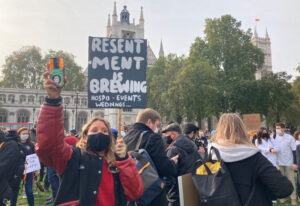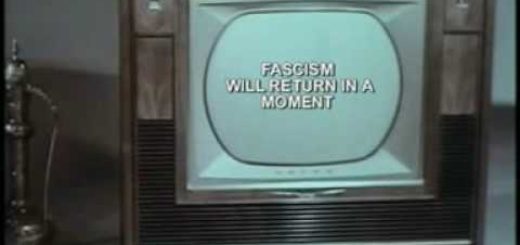Why Should the Government do it All?
The first thing to say, of course, in response to the question posed by the heading is that they do not. I am writing down these thoughts in answer to some who always complain that feeding the hungry, looking after children with free school meals and supporting people out of work should not be government’s responsibility.
I have to say that I think this view, comes from a privileged position. It arises from people who have not by birth or by circumstance had to struggle with poverty, or to ever ask the question, “Where will the next meal come?”
Power. Money. Government Where do power and government come from? Who decides what shall and shall not be? If we look back on History, which, for this discussion is a good thing to do, rulers, powers, and if you like, government usually comes from the strongest, the most ruthless. Maybe nowadays, in a democracy, it comes from the ones who can tell the best stories in order to get voted in, be that truthful or not.
Historically thinking, who is it that governs? It's the ones with the best swords, power and/or violence that ends up running the show. We have to, at this point bring in the King James I perspective (1603 -1625) of his “Divine Right” to be King. One of the stipulations he placed on the translators was to make sure that such “Divine Right” was exhibited in the scriptures. It needs to be added that the translators did not heed his injunction in the translation. Of course, he was not the first to play that card.
From 1066 onwards the King owned it all. That is evidenced in Domesday Book. From then onwards, the population ceased to be free citizens per se, but subjects owned by the King. (Domesday Book commonly pronounced as “Doomsday Book” was so named after the 12th century because its statements were reckoned as a final judgement on taxes – like the final judgement before god. Hence the evolved reference as “Doomsday Book”.
In those days, “As with slaves, serfs could be bought, sold, or traded, with some limitations: they generally could be sold only together with the land, could be abused with no rights over their own bodies, could not leave the land they were bound to, and could marry only with their lord's permission. Serfs who occupied a plot of land were required to work for the lord of the manor who owned that land. In return, they were entitled to protection, justice, and the right to cultivate specific fields within the manor to maintain their own subsistence. Serfs were often required not only to work on the lord's fields but also in his mines and forests and to labour to maintain roads. The manor formed the basic unit of feudal society and the lord of the manor and the villeins. To a certain extent, the serfs were bound legally: by taxation in the case of the former, and economically and socially in the latter.
Societal Structures Societal structure is the way society is organised. Let us remember who it is that decides or legalises those structures. Who is it? It is the people with levers of government, the levers of money, levers of control, levers of the controllers of business structures. These are the people that hold societal power.
These days, the media has revealed that these people who hold the levers of power are those who see cleaners, care workers, and the like as, “unskilled workers” and are thus deserving of a lower wage. That is a wage that means even if they are working a full week, they might still need free school meals for their children or have to use a food bank.
I remember in the '60s working for a large company. The Directors called us in one day and said, “We are doing well! We are making a good profit; we want to give you all an increase in salary.” They then said, "However, we are prevented from doing so because the government says we cannot."
 There was a time, I think up until the late 30s, that government sought to hold down wage increase to even a living wage because “the lower class would waste such increase. They might have more children, and it would reduce them to being poor again.”
There was a time, I think up until the late 30s, that government sought to hold down wage increase to even a living wage because “the lower class would waste such increase. They might have more children, and it would reduce them to being poor again.”
So, when power, government and rulers assume to take over the lives of people, the answer is, “Yes!” They do become responsible by making sure that they are educated, fed, housed and clothed. If you don't want this to remain as the case, then they must cease the power structure situation that makes those things necessary.
w. 794
Adrian Hawkes.
www.adrianhawkes.blogspot.co.uk


